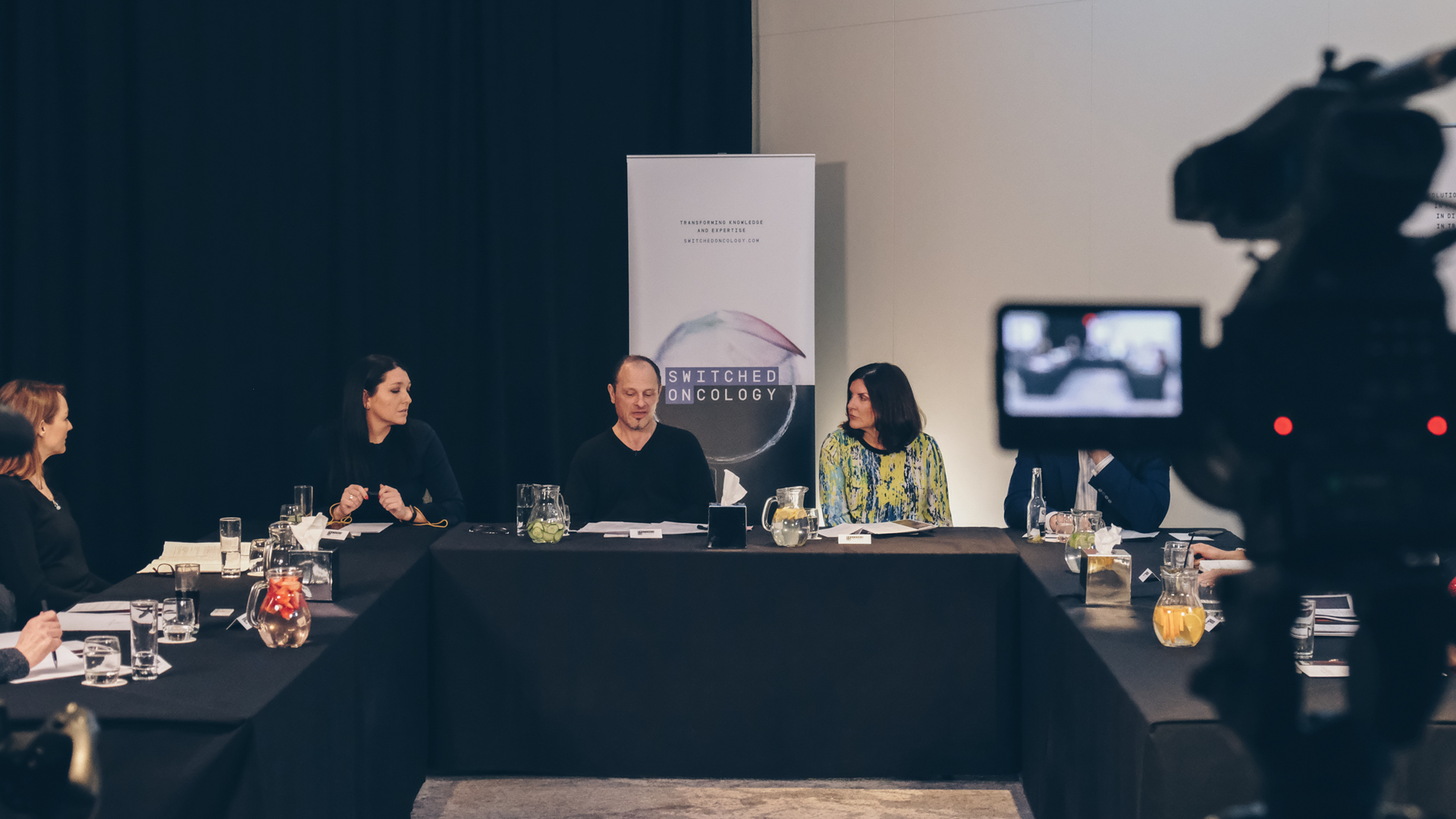26th March 2018
BlogOn the 8th March 2018 we held our caregivers focus group at The Lowry Hotel in Manchester. The discussion focused on the role of a cancer caregiver in today’s care continuum, the challenges they face and potential solutions which will ultimately effect patient outcomes. In this article Steffi Evans, Medical Writer and Executive Faculty Member, Switched Oncology, reports on the key takeaways from the discussion.
Attendees
Matt Eagles, Head of Patient Engagement, Havas Lynx (Chair)
Paras Asher, Caregiver
Rochelle Bugg, Author, Writer, Speaker and Caregiver
Elizabeth Egan, Former Executive Director of Global Strategy and Innovation, AstraZeneca
Emma Howells, Caregiver
David Hunt, CEO, Havas Lynx Group
Nikki Hunter, Clinical Nurse Specialist for Immunotherapy, The Royal NHS Marsden Foundation
Nicola Lentin, Account Director and Caregiver
Jess Mills, Musician and Caregiver
Parker Moss, Former CTO, Virgin Care and Caregiver
Macmillan Cancer Support estimates that there are currently around 1.5 million carers currently caring for someone who has cancer in the UK.1 Broadly, carers in and outside of cancer contribute around £132 billion in unpaidcare every year – only just shy of the £134 billion that is spent in UK public health spending. However despite this, carers are an often underappreciated stakeholder in what pharma calls the “treatment journey”.
In an effort to better understand the role of cancer carers in the UK and what can be done to offer them greater support, Havas Lynx’s Switched Oncology initiative invited carers to a focus group to discuss the current challenges that they face, and potential solutions.
Carer? Or advocate?
For many people, caring is something that arises organically – it’s what we do when a loved one needs us. So perhaps unsurprisingly being labelled as a “carer” doesn’t strike a chord among people who care. Many individuals at our focus group described themselves first and foremost as fathers, wives, daughters and sisters, and viewed their role in giving care as being an advocate for their loved one.
What became clear during our discussions was that this advocacy is a skill that requires not only compassion, but tenacity and an ability to understand the complexity of a patient’s medical care. Advocates are passionate about helping their loved ones and doing everything they can to improve their outcomes – and studies have shown that they do just that, for example by improving medication adherence, side effect reporting and dietary health.
Tragically however, not all patients have an advocate of their own.
Inequalities in care threaten to extinguish hope
Inequalities are sadly common in cancer care. They can range from a loss of income if patients and their advocates give up work, to how language, education and financial barriers may prevent them from accessing important information and resources about treatment options.
Often, advocates lack the support to easily overcome these inequalities. Many describe how clinicians don’t automatically include them in important conversations about diagnosis or clinical trials, how they constantly have to challenge clinicians to offer more solutions or answers, and how these life-altering conversations can sometimes be delivered without enough compassion. Advocates are faced with all these challenges while also carrying out caring duties day and night as they dedicate themselves to looking after their loved ones.
Advocates obviously play a critical and diverse role in a patient’s cancer care, but with so many challenges to overcome, at such a difficult time, it’s easy to see how the situation can come to feel hopeless.
Furthermore, many of us recognise that there is a degree of inevitable suffering that comes with the pain of a cancer diagnosis and the associated toxicities of treatment. However we often overlook the unnecessary suffering that simultaneously takes place among advocates and families, both during their loved one’s illness, and beyond if they are bereaved. Clearly, an advocate’s challenges and needs are closely entwined with, but distinct to those of a patient, and they urgently need to be addressed.
What can we do for advocates?
Increasing patient access to advocates has the potential to fundamentally change the cancer experience for patients and their families. But how can we achieve this? Several potential activities were identified.
The development of an outreach service that could travel to clinics across a country at regular intervals was discussed. This would offer crucial face-to-face advice and support to patients who don’t have an advocate of their own, building a trusting relationship through compassion. Through a service such as this, the inequalities among patients and their carers could hopefully be reduced.
Increasing access to psychological therapies for advocates and families was also highlighted, to offer these individuals direct support. Finally, the fact that existing advocates are experts by their own experience should not be ignored. Advocates should be heavily involved in the development of any service or communication – be it within the charity sector, healthcare trusts or pharma – to ensure their needs are answered.
For many years pharma and clinicians have, rightly, focused on putting the patient at the heart of their activities. However it’s obvious that the patient experience doesn’t stop here. Advocates are a critical extension of the patient and their care, and have the power to influence outcomes. Given their tenacity, strength, and knowledge honed through their determination, isn’t it time that we did more for advocates in cancer?
See the full discussion at www.switchedoncology.com
Learn more about global caregivers at www.invisible-army.com
